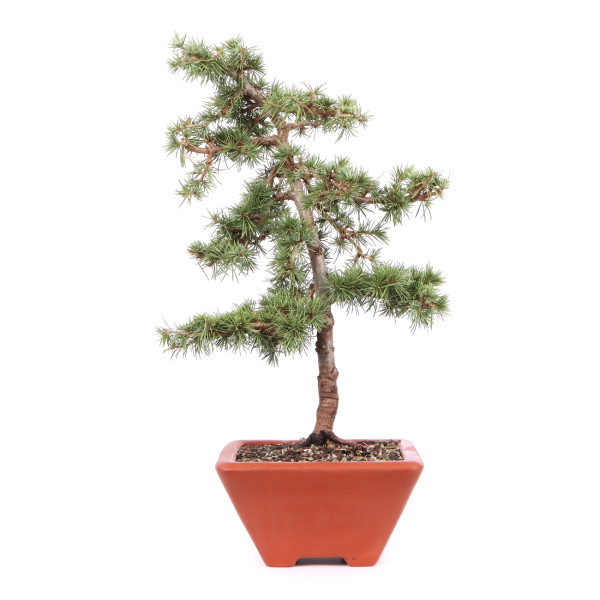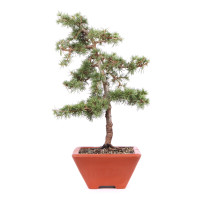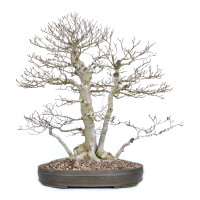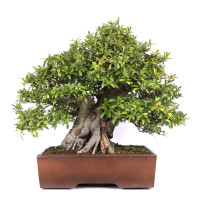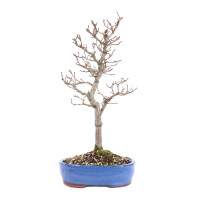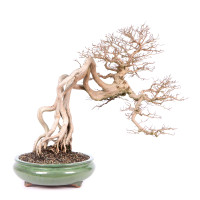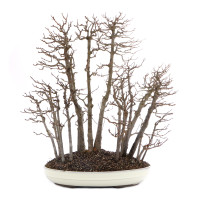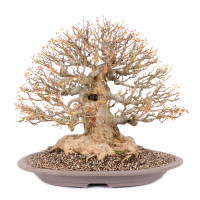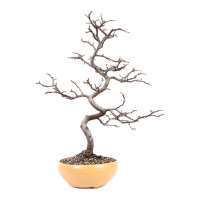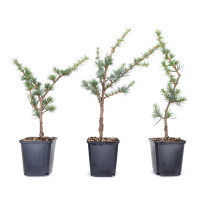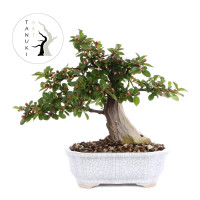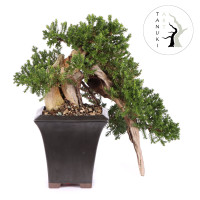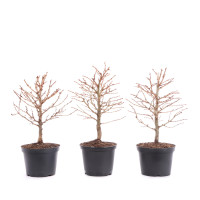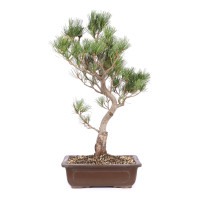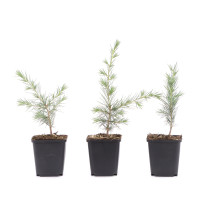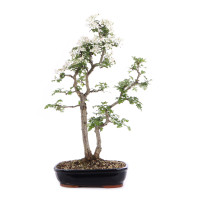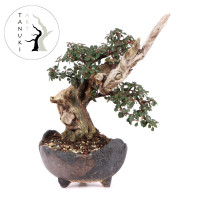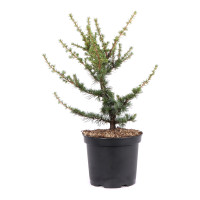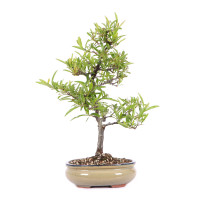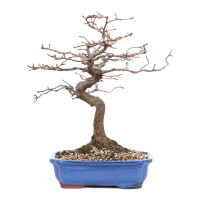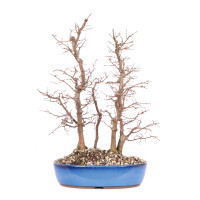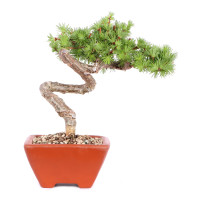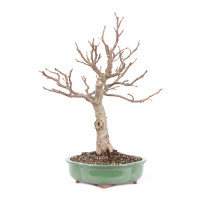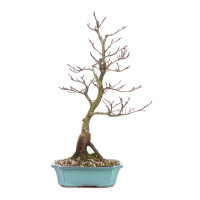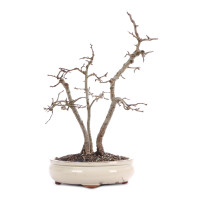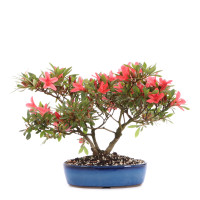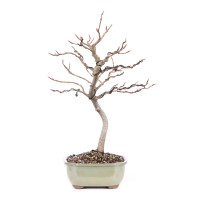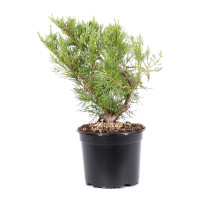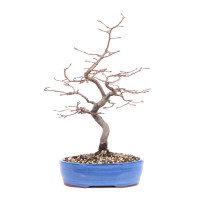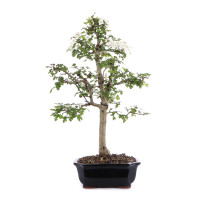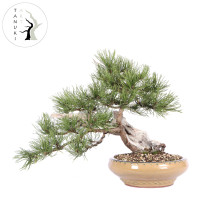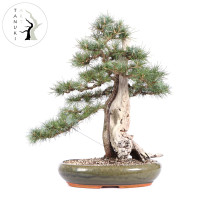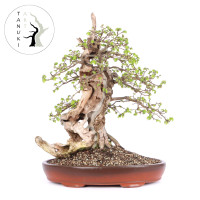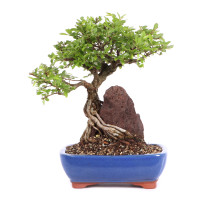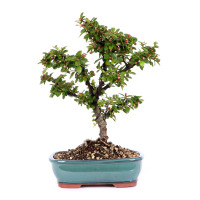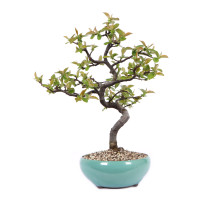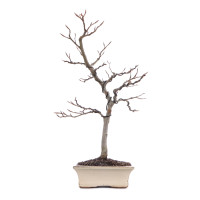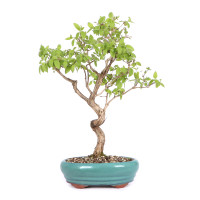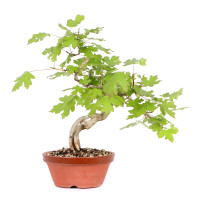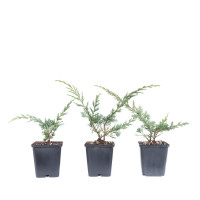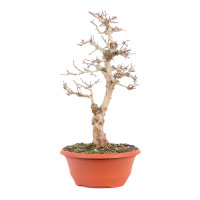- Order number: 1926-K-23-3480
- Height: 50 cm (incl. pot)
- Foliage: evergreen
- Bonsai Pot: ceramic pot
- Origin: Germany
Cedrus atlantica ‘Saphire Nymph‘ - Atlas Cedar 'Saphire Nymph'
General:
Atlas cedars form forests in the Moroccan and Algerian Atlas Mountains and also in other areas of North Africa. The trees here initially grow with a conical crown and later with broad branches. Particularly free-standing Atlas cedars, as you can sometimes find them in our parks, have a very sublime appearance. The plants are fast-growing and usually reach a height of 25 meters. The needles are gray-green to bluish and are in dense clusters.
Care as a bonsai:
There are no limits to the range of styles for this type. Freely upright with an extended or hanging crown and the literary figure is just as logical as the windswept form. The cut tolerance is good and the shaping is completely unproblematic, since the wood is very elastic and pliable. However, the wire also grows in quickly and should therefore be checked or removed in good time. Overall, maintenance is very straightforward. Young shoots are easy to pick with your fingers. This stimulates the branching and there are no brown needle tips. Fertilization can be carried out from mid-March or early April, depending on the weather. Fertilizing should be stopped around mid-August so that the vigorous cedars can mature before the frost. The frost hardiness of the species is good, but the drying winter sun should be avoided.
Special features of the variety:
The dwarf Atlas cedar 'Saphire Nymph' is a foundling from the USA and is very suitable for bonsai cultivation due to its particularly short needles. The plant also grows slowly, very compactly and with overhanging branches. The natural growth is already suitable for shaping into a bonsai and with additional shaping using wire, impressive plants can be developed quickly. Atlas cedars are grafted and only partially frost-hardy. For this reason, the plants should be kept frost-free in winter if possible.

